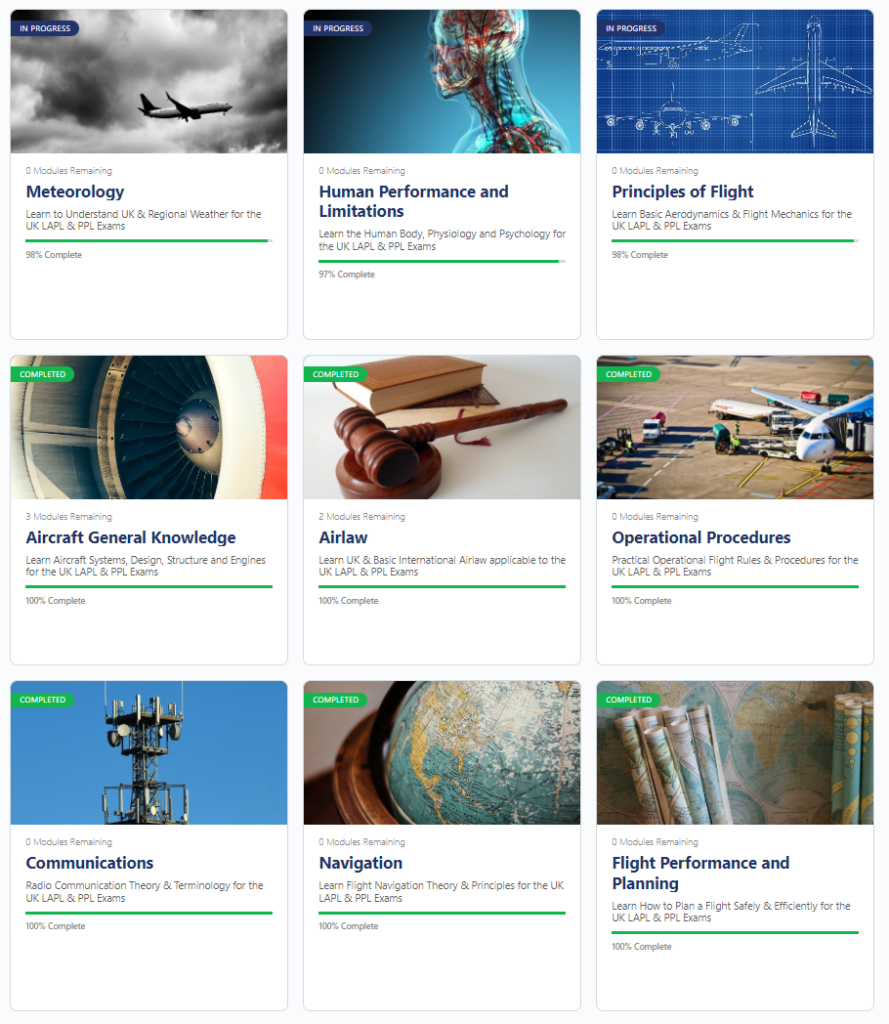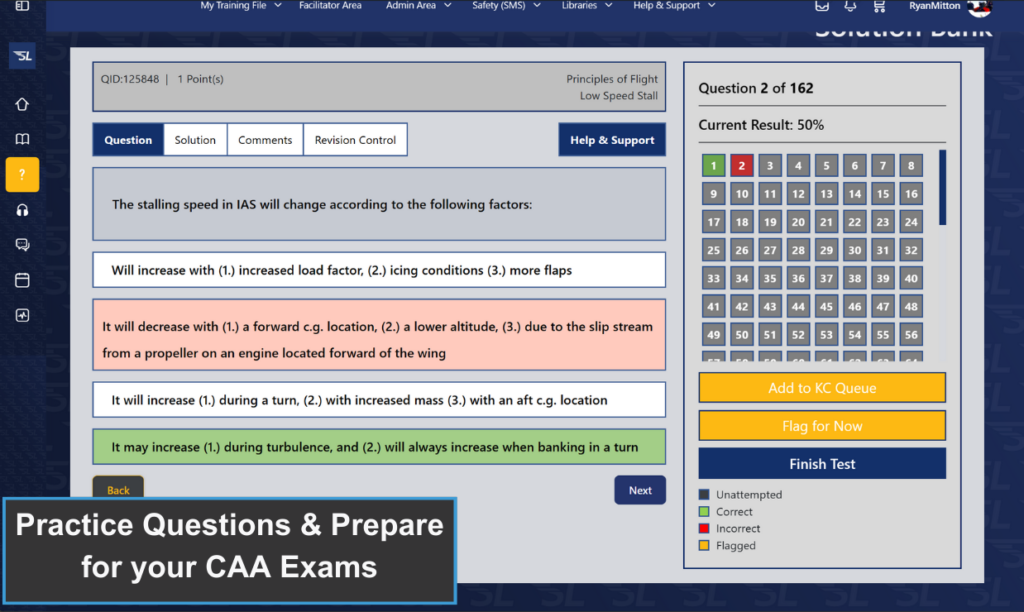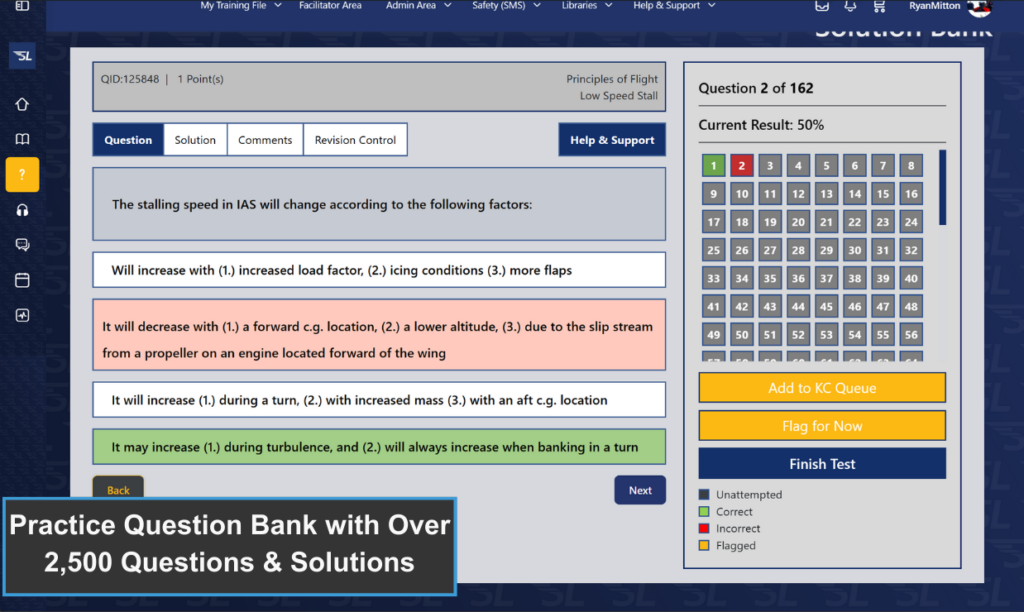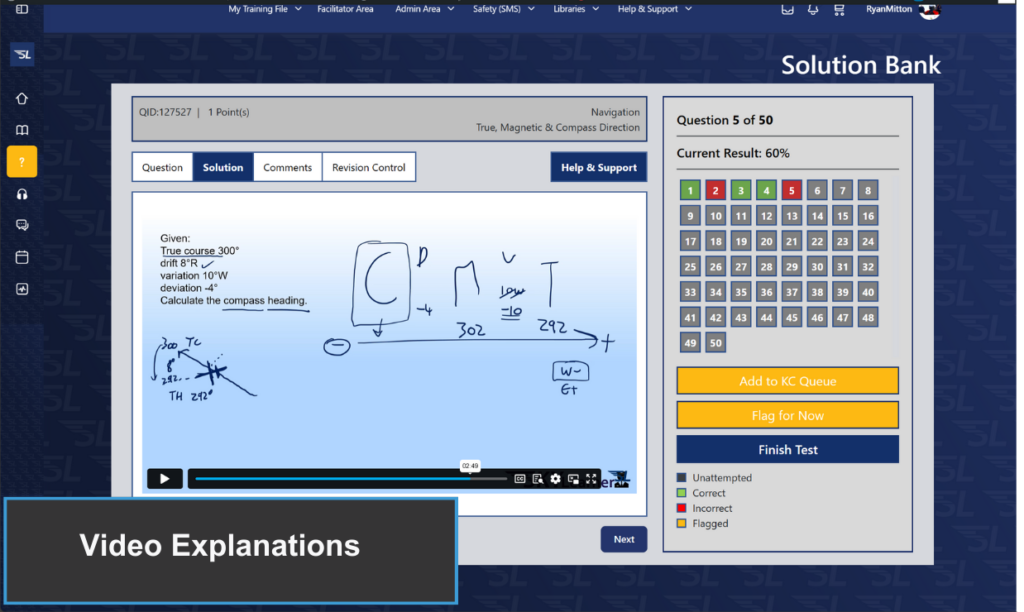Wondering how to pass your UK PPL exams?
In this article, we will look at what you can expect from the PPL theory and how to pass your exams!
There are 9 subjects in the UK Private Pilot Licence (PPL) Syllabus (Meteorology, Human Performance & Limitations, Principles of Flight, Aircraft General Knowledge, Air Law, Operational Procedures, Communication, Navigation & Flight Planning & Performance) and the required pass mark for each exam is 75%.
Passing the UK PPL exams requires a structured approach to learning and a solid understanding of aviation theory. For many students, passing these exams can feel rather intimidating, and for those going on to follow a professional career and complete their Airline Transport Pilot Licence (ATPL) a solid foundation of the PPL content is crucial!
At SkyLearner we understand that each student is unique, with different learning styles, skill sets, backgrounds and study needs. We are here to help you not only pass your UK PPL exams, but to embrace your study material so that you may become a safer, more professional pilot.

Tips to Pass your UK PPL Exams
Know the Theory
Good study material keeps you engaged & involved in your learning while covering a comprehensive syllabus as laid out by the National Authority. The notes you choose as your primary reference should incorporate a variety of teaching techniques to cater for a good deal of different learning styles students may have. It is important that you understand your theory, as a solid understanding of the content creates safer, more professional aviators and helps you pass your PPL exams!
At SkyLearner we offer a UK CAA Approved Training Programme which covers all learning objectives outlined by the National authority. Our Courses keep learners engaged with interactive videos, structured walkthrough lessons of core concepts where students are known to have difficulties, continuous testing, note building & a robust Question Bank allowing students to take mock exams while having access to detailed solutions to answers which are designed to educate students.

Practice Exams
Don’t get us wrong, practising up to date and relevant questions in exam conditions is a wonderful way to test your comprehension of the theory and give yourself a better chance of passing your PPL exams!
The questions you find during your PPL exams having been frustrating students for many years. These questions can often be poorly written or phrased, appear vague, or seem to have multiple correct answers. For this reason, exposure to the type of questioning is vital. Many of these questions are now scenario based as well, so a student is expected to apply the knowledge they have learned as forward-thinking aviators.
There are many Question Banks on the market, and students sometimes tend to apply a “more is more” approach and make use of multiple platforms to prepare themselves for the exams.
At SkyLearner we have a different name for our Question Bank, we prefer the term “Solution Bank”. Our Solution Bank is as robust learning tool, allowing you a range of question options to choose from. We have over 2500 questions in our PPL syllabus, all questions have detailed solutions and an instructor is available at a click of a button to aid you when you get stuck on a concept! View SkyLearner System Features.
When you struggle in a particular area, there is nothing worse than not understanding why your comprehension is flawed! A quality Question Bank explains why the correct answer is right, as well as why the other options are wrong, allowing you to grow your understanding and pass your PPL exams!



Read the Full Question Twice
When practising for exams, it is important to understand exactly what the question is asking of you. Understanding what is being asked of you will better equip you for passing your PPL exams!
Read each question carefully, read the question again, think of what you believe the correct answer should be before you read the available options. If you have a solid understanding of your learning material, this initial answer that you come up with is often correct!
Should you be stuck, you can use a process of elimination to get rid of the obviously incorrect answers and review the remaining answers by once again looking at the question and deciding what the question is actually asking of you.
As mentioned, these questions are often written in strange ways and can feel like more of a test of your compression of the English Language than of your aviation knowledge!

Ask for Help
There is nothing quite like having a mentor who understands and cares about your progress and development. If you have an instructor at your school who enjoys teaching, and who you can relate to, then see if they may be willing to set time aside to help you understand core areas that you may struggle with.
Sometimes it is also a good idea to learn the work so that you can teach others, in so doing you may find that you yourself become the mentor, improve your own comprehension of the subject and help your fellow students! Social learning is important, and for this reason we have included a social feed on the SkyLearner System, share your stories, learn from each other’s experience and grow your aviation network!
If your school’s instructors are too busy with their flying duties, active SkyLearner students can take advantage of our dedicated instructor chats free of charge, or make use of our premium 1:1 video tuition service. Friendly held and advice will always be given at SkyLearner, if you are not an active student, contact us so we can see where we can assist you and get you back on track for passing your exams!

10 effective study habits to help you pass your UK PPL exams:
On top of having the right study notes and system, here is a list of healthy study habits you will need to incorporate in order to help you pass your UK CAA PPL Exams.
Create a Study Schedule:
Set aside specific times each day for studying. Consistency is key.
Organize Your Materials:
Keep your notes, textbooks, and study resources well-organized. Use folders or digital tools to manage files. Don’t allow clutter to ruin your study session! It is always best to start your studies in an uncluttered environment, as it reduces both distraction and irritation.
Break Tasks into Smaller Chunks:
Divide your study sessions into manageable segments. To focus on one topic at a time, this is called “chunking” and is an effective method of memorising larger volumes of work over time.
Active Learning Techniques:
Engage actively with the material. Summarize what you have learned, teach your fellow students, or create flashcards.
Practice Retrieval:
Test yourself regularly. Use practice questions & Scenarios, allowing yourself to think out of the box and apply what you have learned. Consider writing short summaries of your work from memory and checking this summary for accuracy later on.
Find a Quiet and Comfortable Study Space:
Minimize distractions and create a conducive environment for concentration.
Stay Hydrated and Get Enough Rest:
Proper hydration and sleep improve cognitive function and memory. We all have our limits, and studying for too long a period and not getting sufficient food & drink WILL cause a decrease in your ability to retain knowledge.
Use Mnemonics and Visual Aids:
Create acronyms, visual diagrams, or mind maps to reinforce concepts. Make these memorable by creating funny acronyms and using bright colours or highlight key phrases!
Review Regularly:
Don’t cram! Review your study notes and learning material consistently over time to reinforce learning.
Stay Positive and Reward Yourself:
Celebrate small achievements, positive reinforcement boosts motivation.
Remember, effective study habits are personalised. We are all different and absorb knowledge at different rates and in varying ways. So, experiment with different techniques to find what works best for you!
If you get stuck, or are struggling to create healthy study habits, feel free to contact us! Remember, we are always here to offer advice & guidance and help you along this journey!
For more information on the UK PPL, Examinations and Flight Crew Licensing, visit the UK CAA Website or find out how more about the CAA e-Exams.








Responses